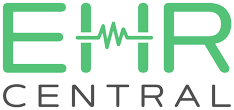Digital Dermatology: Virtual Skin Consultations on the Rise
From acne and eczema to aging concerns, skin conditions often require expert care, but getting an appointment with a dermatologist can take weeks. Enter digital dermatology: a fast-growing branch of telemedicine allowing patients to connect with

certified dermatologists through virtual consultations. With advanced imaging, AI-powered tools, and secure video visits, patients can now receive accurate diagnoses and treatment plans from the comfort of their homes.
The Rise of Virtual Skin Consultations
Tele dermatology was once a niche service, but post-pandemic, it has become a mainstream mode of care. The convenience of uploading photos or scheduling quick video calls appeals to patients seeking faster, affordable access to dermatologists. According to recent reports, digital dermatology consultations have increased by over 60% in the past two years, driven by improved technology and patient trust in virtual care.
How Digital Dermatology Works
Patients can initiate an online consultation through a secure portal, such as mHospital’s telehealth platform by sharing images of the affected skin area and describing symptoms. Dermatologists review these images, sometimes with the aid of AI-powered diagnostic tools, to assess conditions such as rashes, acne, pigmentation, or infections.
Treatment plans, prescriptions, and follow-up schedules are then shared digitally, ensuring complete continuity of care.
Key Benefits for Patients and Providers
- Convenience: Access to expert dermatology care without leaving home.
- Speed: Reduced waiting times for appointments and faster treatment initiation.
- Accuracy: High-resolution imaging and AI tools support precise diagnoses.
- Affordability: Virtual consultations often cost less than in-person visits.
- Continuity: Easy follow-ups and digital prescriptions streamline care delivery.
Challenges and Future Outlook
While virtual dermatology offers clear advantages, challenges remain, such as the need for high-quality imaging, patient data security, and integration with in-person care when required. However, as AI skin analysis and augmented reality (AR) imaging advances, digital dermatology will continue to evolve, offering even more accurate and personalized skincare.
Final Words
The shift toward digital dermatology marks a transformative step in healthcare accessibility. Virtual consultations empower patients to take proactive control of their skin health, supported by expert care at their fingertips. With platforms like mHospital, virtual dermatology isn’t just a trend, it’s the future of skincare.





